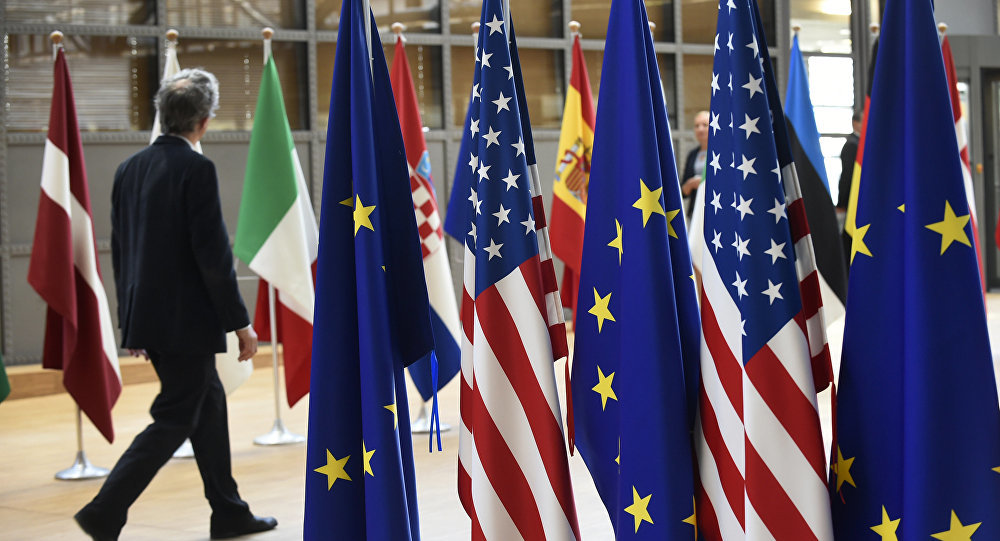U.S., Europe play games with JCPOA

TEHRAN - The U.S. attacks on the nuclear deal and the dual approach of Europeans towards the JCPOA are the prime pieces of a puzzle perniciously played by Washington and the European Troika. During the Munich Security Conference, this moves against the nuclear deal even grew more dangerous.
Trumps’ U.S. National Security Adviser, Herbert McMaster, explicitly called for a review of the Joint Comprehensive Plan of Action. Contrary to U.S. commitments (JCPOA Clauses 26-29), McMaster called Iran an unreliable, insecure partner while addressing the 54th Munich Security Conference last Saturday, and insisted that U.S. allies halt trade with Iran over its alleged meddling in regional affairs. He stated: “So the time is now, we think, to act against Iran… as a matter of international security…we must stop doing business with [Revolutionary Guard Corps] affiliated interests….”
After McMaster, German Foreign Minister Sigmar Gabriel played along with the U.S. game by showing overall support for the JCPOA on the one hand, but attacking Iran's regional policies on the other. A closer look at Gabriel's remarks reveals his support of the U.S. maneuvers.
Gabriel urged the U.S. not to withdraw from the JCPOA. Instead, he asked the American authorities to cooperate in establishing new strategies to confront "Iran's destabilizing policies" and "to limit its influence in the Middle East". The multilateral agreement between Iran and the P5+1 states, namely the U.S., the UK, France, China, Russia plus Germany, removes all nuclear-related sanctions against Iran in exchange for certain limitations on its peaceful nuclear program. However, it seems Gabriel is suggesting sanction renewals or expansions.
While the conference was also the scene of EU opposition to Donald Trump's economic policies, the European Troika and the Trump Administration agreed on taking steps against the JCPOA. Now, the U.S. and its European vassals may be aiming to complete their maneuvering: a recent Reuters report claimed that the U.S. State Department has sent a document to its embassies in Berlin, Paris and London that might be viewed as a revision of previous requests by the U.S. In this document, the ambassadors of Germany, Britain and France are asked to commit themselves to work together to reach agreement on the development and testing of long-range Iranian missiles, on the guarantee of the IAEA inspections, and on the reform or elimination of "sunset clauses". These U.S. demands, in fact, are nothing new. They have been floated before.
Reuters quoted American and European authorities’ remarks claiming that Washington and the European Troika can push a "complementary agreement" with Iran. But this means that the acceptance or rejection of any “complementary” agreement by Iran, China and Russia won't even matter. Thus, Washington and the European Troika may decide on a "unilateral agreement", according to which, the nuclear deal with Iran will be automatically cancelled if Iran continues its missile tests or does not permit the inspection of its military sites. This is a clear violation of the spirit and content of the JCPOA. The Munich conference demonstrated subterfuge, conniving and unfair dealing over the JCPOA. It uncovered the Washington-European game of opposition to the nuclear deal. This trend will likely intensify in March and April and given what we know so far, the U.S. and the EU intend to formulate and hold P4 + 0 talks instead of reviving the P5 + 1 negotiations.
This move will certainly provoke a firm response from the Islamic Republic of Iran, and also opposition from China and Russia. Iran will be looking for support from China and Russia to counter attacks on the JCPOA as it currently stands. In the coming weeks, the common opposition of Washington and the European Troika towards the JCPOA will become blatantly clear, and it has, contrary to absurd claims, nothing to do with alleged attempts to “preserve” the nuclear accord.

Leave a Comment